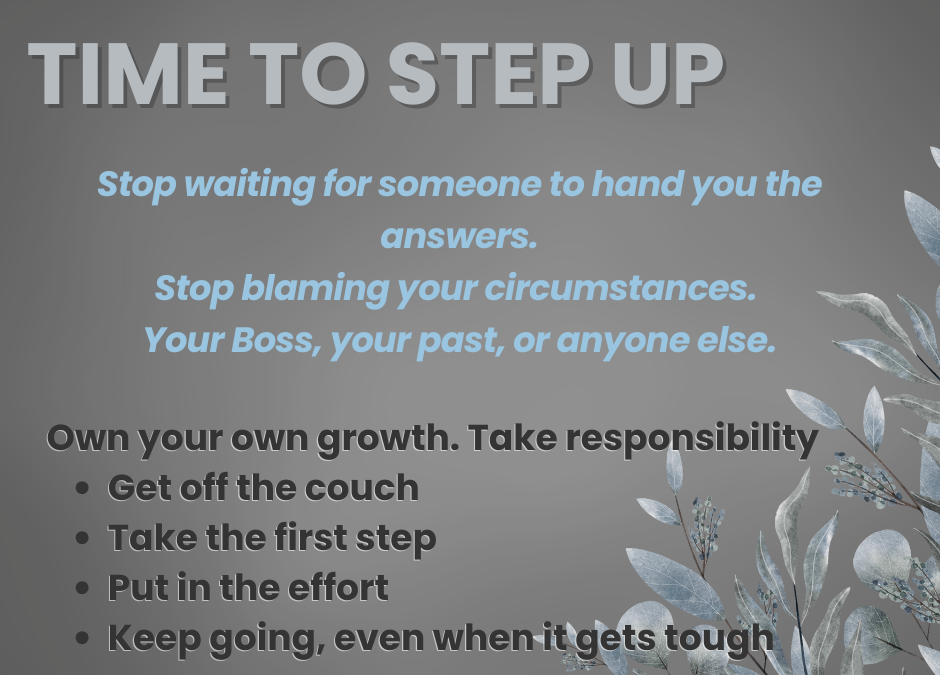
Jun 3, 2025 | My Blog
The last two weeks have been rough.
Not in a big, dramatic, stuff is blowing up kind of way. Just heavy. I felt stuck, like I was treading water and getting nowhere and things that I’m trying isn’t working. And to be honest, I felt a bit like a failure. I was fragile, tired, and weighed down by a subtle, lingering sadness that I couldn’t quite explain. I felt alone, a bit abandoned, and weirdly guilty for even feeling that way.
Because when I zoomed out? Life is actually okay. Not incredible, on-fire exciting, but objectively… okay. My health has been improving. I was connecting with people, even though it wasn’t yet turning into new business. But that just made me feel worse. Like a spoilt brat with no real reason to complain.
And in the middle of that messy headspace, I didn’t feel like I could reach out. Not to the people who usually help me through these dips. I felt too fragile, too exposed, and honestly… a little embarrassed. There was one situation in particular that had me off-balance, and in that state, even minor things felt like a sucker punch.
Then, without thinking too much about it, I did something simple: I cleaned my kitchen.
I popped in my AirPods, put on music, and just started. No overthinking. No planning. Just… action. A simple task. Something I could control. It wasn’t really a mess but didn’t realise how much it was bothering me until it was gone. Halfway through, I noticed I was breathing easier. I felt lighter. Still raw, but clearer.
That moment of physical movement, of reclaiming my space, helped me recalibrate.
And it wasn’t just the cleaning. It was the unplugging. The act of removing myself from all the noise. Ignoring my phone. Letting myself disconnect from everything and everyone.
Afterwards, I made something to eat, then lay on the couch and watched feel-good, slightly ridiculous series that made me laugh through the serious and the sad. Later, I cooked a healthy chicken soup; one that I hoped wouldn’t aggravate my esophagus or trigger reflux, which had been flaring up again.
That evening, I finally checked my phone. There was a message from a potential new client.
Strong Habits kicked in, I wanted to help. But the gift of that day was that it gave me enough space to pause before saying yes. I knew I didn’t have it in me to show up fully in that moment. And if I can’t show up 100%, I won’t pretend I can. We scheduled the meeting for the next day. I returned to my couch, my soup, and my soft blanket.
Sleep still didn’t come easily. That damn reflux reminded me that my body feels stress even when I pretend not to. Especially the pressure I put on myself. The pressure to always be okay. To always push forward. To always show up strong.
Truth is, the things stacking up against me over those two weeks weren’t massive on their own. But together? They weighed heavy. And when I was in the middle of it, I couldn’t see a way through.
What I’m seeing now, from the other side, is that I wasn’t alone. Maybe not in the way I’m used to but there were still people who showed up. Not the usual ones, but exactly who I needed in the moment.
And the biggest shift happened when I made space. When I stopped trying to force momentum. When I took control of what I could (like my kitchen). When I allowed myself to pause, to breathe, to not be okay for a while.
I’m learning (again) that my process is messy. It’s not linear. It’s uncomfortable. Sometimes it makes me feel fragile, exposed, and scattered. But it’s mine. This time it took a bit longer but it’s how I move through things.
Sometimes I get up and keep going with just a scratch. Sometimes I need to stop, cry, clean, eat soup, and rest. Sometimes I need to ask for help. Sometimes I don’t.
But always — always — it has to be me that takes the action.
I’m reminded of something James Clear calls the “Valley of Disappointment.” It’s that place where you feel like the work you’ve put in isn’t paying off. Like the effort doesn’t matter. But it does. The work, the effort, is stacking. It’s building beneath the surface. It’s not wasted.
I just need to hold that tricky balance between patience and persistence. Between not giving up on the dream and accepting that some things take time. That growth is a process, not a performance.
The Conscious Leadership Group has a tool that helps in times like this:
- Awareness
- Acceptance
- Asking your self: Are you willing to Shift?
- And if you are willing to shift: What action do you need to shift?
As I sat with all this, a leaf drifted down and landed on my notebook. I brushed it off without thinking. Then I paused.
Where did it come from? Where is it going? Why here, now?
It grounded me in the moment. This moment. No phone, no pressure, no need to figure it all out.
That small act reminded me that sometimes, it’s not about solving everything. It’s about being present. Accepting where you are. Letting yourself be held by the stillness, the silence, and the small, quiet truths.
If you’re in a slump, maybe what you need isn’t to push harder. Maybe you just need to clean your kitchen.
May whatever comes next bring you peace, insight, and clarity. May you find your truth, and follow it with grace.
So if you’re feeling stuck or fragile right now, ask yourself: What’s one small, grounded thing you can do today? Start there.It’s enough.
And if you’re feeling stuck — professionally, creatively, or just in life — and you want to talk it through with someone who gets it, I’ve got space for that.👉 Book a Free Discovery session here — let’s find some clarity, together.

Apr 4, 2025 | My Blog
Sometimes, life throws you a curveball that makes you stop and think. That happened to me recently, and it got me reflecting.
Someone told me a few days ago that we weren’t serving them the way they expected. Just one person. It might not reflect how everyone feels, but it hit me hard because it brought up a pattern I’ve seen before, where people expect you to hand them the answers, the growth, the motivation.
It’s the same when I ask a client, “What would you like to work on today?” and they respond with: “You’re the coach, you tell me.” Seriously? It’s your journey. I’m here to guide, challenge, and support you — but I can’t do the work for you.
I have no problem meeting people where they are. I’m happy to start from the basics if needed, I’ll support you as you find your feet, and I’ll cheer you on every step of the way. But the spark — that drive — it has to come from you. I can’t light that fire for you.
And honestly, I’m done.
I’m done with people sitting back, waiting for someone else to feed them, support them, or save them. It’s draining. It’s exhausting. I’m done dragging people along who aren’t willing to step up. My energy is finite, and I’m choosing to focus it on those who are ready to take responsibility for their growth. Those who understand that success is built from within.
If you’re not investing in yourself, if you’re not working on your mindset, and if you’re not growing — that’s on you. Nobody else.
It’s not about having money or opportunities. It’s about mindset. It’s about moving out of victimhood and stepping into discomfort — facing the unknown, the uncertain, and the uncomfortable. It’s about acknowledging where you are, accepting that change is needed, and taking action — even if you’re unsure how it will all unfold.
Someone recently put it like this: it’s like paying for a gym membership and then complaining you’re not getting fit. Just paying the fee doesn’t do the work for you. You actually have to show up, do the work, and push through the discomfort. Personal growth works the same way. Don’t expect your employer, your coach, or anyone else to take full responsibility for your development. If you’re given an opportunity, great — grab it and run with it. But at the end of the day, YOU have to put in the effort.
And yes, asking for help is important. It takes courage and honesty to reach out when you need it. But expecting someone to swoop in and fix everything for you? That’s not how life works.
You’ve got to:
- Get off the couch
- Take the first step
- Put in the effort
- Keep going, even when it gets tough
Nobody else can do it for you. No one else is responsible for your growth or your future.
If you’re not willing to take responsibility for your own journey, you’ll get left behind. The world is changing faster than ever, and if you don’t adapt — if you don’t develop the skills and mindset for the future — you’re in for a harsh reality check.
Monika Iuel nailed it when she said,
“We need to be solving for the future rather than recovering from the past.”
She was talking about the future of tourism in South Africa, but that message applies to all of us. Stop focusing on what could have been, what should have been, or what might have been. Start preparing for what’s next.
Step up.
Only you can make that choice. Only you can take the action — even if it’s a small, shaky step at first.
So, get up. Get moving. Do it for you — because no one else will.
Stop waiting for someone to hand you the answers. Stop blaming your circumstances, your boss, your past, or anyone else. Own your growth. Take responsibility. Commit to doing the work, even when it’s tough, even when you don’t feel like it.
If you want more, do more. Simple as that. You can either make excuses or make progress.
The choice is yours.
Ready to take ownership of your future? Let’s talk. Book your free discovery call with me today and let’s figure out how to get you moving forward—no more excuses.
👉 Book your free discovery session now!
Get off the couch. Get in the game. Make it happen.

Feb 18, 2025 | My Blog
Have you ever thought that everything is running smoothly, and then slowly but surely you start feeling the pressure and that things aren’t exactly right, but you don’t have time to figure out what the problem is — until suddenly, it all starts crashing around you? That’s exactly what happened to me recently, but not just in a metaphorical way. My internet kept cutting out, and as someone who does 90% of my coaching work online, this was more than an inconvenience—it was a crisis.
My first solution was to get an additional mobile router with a different provider. So now I had Plan A (WiFi), Plan B (Mobile Router), and Plan C (using my phone as a hotspot).
Except… the WiFi kept dropping, and neither mobile service provider was stable.
Next, I reported the WiFi issue again.
A technician called me, and during our troubleshooting conversation, he said:
“Ma’am, your connection is under pressure because you have 17 devices connected.”
17?! What the heck—HOW?!
At first, I was in total disbelief. But then we started thinking about how this could have happened.
Over the last few months, we’ve had to update and upgrade some equipment, all while being mindful of our solar power setup. These weren’t just shiny new gadgets, we had to plan, save, and get help to make these upgrades work within our setup. This impacted the type of equipment we had to get, and a number of these devices (like air conditioning units and geysers) now ran on WiFi so they could be remotely switched on and off. Fun for coming home to a hot, Phalaborwa house, but also crucial for monitoring and protecting our solar batteries and inverters.
We also added new inverters that need to be connected to WiFi for the app to function, four of them, to be exact.
Once we sat down and really thought about it, we got to 12 devices really quickly.
No wonder the internet was struggling!
The biggest problem? We couldn’t remove most of these devices, and the situation was directly impacting my business.
Yesterday, the technicians were scheduled to come out and replace several WiFi connections with wired cables.
My first coaching session that morning was beyond frustrating. The connection kept dropping, and neither Plan B nor Plan C was much help.
Then, the tech team arrived.
Drilling through walls, ladders everywhere, cables, dust, and chunks of plaster flying around—all while I was still trying to run sessions. It was uncomfortable and chaotic, but necessary for the greater good, right?
Amid the dust and debris, I connected to my next session using my new wired connection…
Success! No internet drops!
Then came the next session—also stable. And suddenly, I had a realization.
Isn’t this exactly what happens in our lives?
We don’t say no to things we should, piling on commitments, responsibilities, and expectations without noticing how much we’re carrying.
Eventually, things start breaking down. We try quick fixes—juggling schedules, squeezing in extra time, multitasking, giving up weekends and family time—but it doesn’t work.
Making the load lighter isn’t always an option. Life keeps stacking up against us.
Instead, we need to find smarter solutions—rethinking our setup, redistributing the load, and sometimes, going back to basics. Like rewiring.
So let me ask you: What’s choking your bandwidth?
What needs to shift so you can create space to focus on what truly matters?
Let’s work together to clear the clutter and free up your bandwidth. Book a free discovery session with me here.

Nov 11, 2024 | My Blog
In a recent session, we found ourselves discussing what it means to own a problem.
While it’s not a new topic, it often pops up for people around the same time and becomes a bit of a theme.
This particular conversation was about the decision to take ownership of a problem that isn’t truly yours to solve. Just a few days ago, I saw this concept play out in a hardware store of all places.
On a recent camping trip, a fellow camper brought a piece of artificial grass. She used it for everything—from a comfortable lounging spot on the ground to a way to keep her feet clean after a shower. Ingenious, right?
So, off we went to a hardware store to get our own piece of this luxurious yet practical addition to camping gear.
The adventure began immediately. The artificial grass was on a massive 2-meter-wide roll, awkwardly wedged between shelves of arts-and-crafts supplies and other stock. Two employees struggled to wrestle it free without toppling anything, while I kept a safe distance, trying to stay out of the line of fire as they finally heaved it onto the floor.
After scrounging around for tools, they finally came up with a box cutter and a pair of ordinary scissors. I wasn’t paying close attention until I noticed the young man trying to fold the grass just right so he could cut it mid-air without damaging the floor. It didn’t go smoothly, so he switched to the scissors. This worked but only with considerable effort.
At this point, an older employee approached, grumbling at the young man’s choice of scissors. He then sent someone to fetch his pair of scissors. I assumed they’d be a sturdier, industrial pair—after all, the grass was 20 mm thick with a rubber backing.
Soon, they returned… with the exact same scissors the young man had been struggling with.
I watched as the older employee stubbornly attacked the grass roll, hacking away with no less frustration than his younger colleague, while the others looked on with blank, slightly defeated expressions. A few possible solutions ran through my mind, but in that moment, a question popped up:
“Is this my problem to own?”
The answer was clear: it wasn’t. Here were five people in the middle of a hardware store, grappling with the tools and plan they had chosen. And so, I simply turned around and walked away.
Now, you might ask, why didn’t I say something or offer to help ease the frustration around that roll of grass?
You might be surprised to hear that, for me, this small incident was actually a huge victory.
As someone with strong habits of taking ownership, being responsive and having an attitude of getting involved, I’ve found myself in plenty of situations where I’ve taken extreme ownership of a task, only to end up doing the work alone and at a heavy personal cost.
In this moment, though, I saw that despite their frustration, they were making progress.
And by recognising that this wasn’t my problem to own, I found the space to step back, without guilt or frustration.
Yes, it took them longer, and the grass was a bit rough around the edges—but we got what we came for.
So this week, when you face a frustrating situation, ask yourself:
“Is this my problem to own?”
-
If the answer is yes, roll up your sleeves and get it done.
-
If it’s not, politely remove yourself from the situation, either physically or mentally, and do something else that gives you energy and space to avoid worrying about things that aren’t in your control.
One of my clients recently faced a similar moment when a colleague reacted badly to some feedback she’d given. While we can (and should) take full responsibility of how we deliver feedback, how someone responds isn’t our problem to own.
Of course, this isn’t always simple. It takes practice to discern what part of a problem is actually yours to handle.
Going forward, this simple question—“Is this my problem to own?”—is definitely going into my toolbelt. From now on, it’ll be one of the first questions I ask myself when faced with a challenge.
If you’re interested in exploring how to approach challenges with fresh perspective and identify which problems are yours to own, I’d love to help. Book a free discovery session here

Sep 8, 2024 | My Blog
For four years, I’ve been deeply focussed in personal growth, focusing on my mindset and development.
At the beginning of this year, I decided to shift gears. I chose to step back from working solely on myself and start concentrating on building my business and getting the skills needed for that. For the first time, I invested time, energy, and money into figuring out exactly where I wanted my business and I to go.
Initially, I had plenty of time to think, plan, and process. This was a comfortable phase where I could explore and understand my business better, and I took full advantage of it.
Then, I took on a contract that required me to work on site for 12 days each month. I knew, and accepted, this opportunity with a clear understanding of the potential impact on my business and personal well-being. I was dedicating almost half of each month to someone else’s business, leaving me with the remaining days to serve my clients, develop new business, and, importantly, rest and recover.
What I didn’t expect was that this contract would spark significant learnings and changes for me:
- I discovered I could coach effectively on the go, adapting to different situations as needed.
- I realized I could connect with people from different backgrounds, regardless of language, culture, or education.
- I understood the importance of giving myself time to understand what was going on around me.
- I finally understood that my process is fluid. It is flexible and ever-changing and that, in fact, made my offering unique rather than something I should be worried about.
During this time, I adapted to a fast-paced environment by staying active, eating as healthily as possible, and drinking plenty of water. I made sure to schedule rest and personal time even with a busy pace.
When the contract wrapped up, I felt a bit lost. The rhythm I’d created was gone, and I struggled to get back into my previous routines. I was also concerned about what came next. Even though I knew the contract would take me away from business development, it still affected me more than I expected.
In the following two months, I focused on improving my skills and making my workflow more efficient. This quieter period gave me a clearer understanding of what I wanted and how I was already making it happen. I later learned this is known as unconscious competence, but that’s a topic for another time.
This period of reflection and adjustment led to some exciting developments. I signed a 6 month pilot with a client, took on two new one-on-one clients, and lined up another Team Elevation Program.
Suddenly, I was juggling several new clients at once, which pushed me to refine my workflow to be more effective and engaging.
I realized I needed to manage my time differently. I had to schedule time for processing and rest while adjusting some of my earlier boundaries. I learnt that people didn’t have time to think about Personal development in “work time” and sessions now needed to be scheduled after work hours, with some crisis support happening early mornings, late nights, or weekends.
Once again, I needed to rethink my rhythm to fit the new demands.
Interestingly, I no longer felt as overwhelmed or anxious this time because I’ve navigated similar changes before. I trust that I have the tools to find a better balance, even as adjusting rhythms become my new normal.
Going forward I have some tools in place:
-
- Keep checking in with myself, making sure I balance high-energy work with rest.
- Continue to learn, adapt, and make adjustments as needed, knowing that flexibility is important but not giving away my inner peace.
- Be honest with myself about what I want and don’t want, where I can improve, and where I need to say no for my own well-being.
I’m by no means always getting it right. This journey is full of ups and downs—uneven, rocky, uncomfortable, yet brilliant and inspiring.
But it’s my journey, and I’m embracing it fully.
Feeling stuck in your own rhythm? Ready to find your balance and growth path? Let’s explore it together. Book a free Discovery session here.

May 27, 2024 | My Blog
It’s really hard for me to “sell” myself and what I do.
The funny part is that I have no problem talking to others about things I’m passionate about… for others. But when it comes to putting myself out there, it feels like a mountain I just don’t know how to start climbing.
The path seems littered with limiting beliefs, doubts, imposter syndrome, and stories that I tell myself, all of which makes this one of the biggest obstacles for growing my business.
While trying to understand what is really going on, I was chatting with my Dad the other day.
While I was growing up, my Father was an insurance salesman. He told me a story about a new recruit that had to go and see a client one evening.
My father happened to be driving past, and he watched the young recruit pull up in front of the potential client’s house. The house was dark with no visible sign of life.
The young recruit sat in the car staring at the dark house for a while before starting the vehicle and pulling out of the driveway.
My father pulled up next to him and asked him what he was doing. He replied that the house was dark and it didn’t look like anyone was there.
My father told him to go back to the house and knock on the door.
Reluctantly the young recruit got out of the vehicle and knocked on the door….
….the door was opened, and he ended up writing a big policy that earned him a good commission.
The lesson for me has two parts:
First, I can’t decide for others if they are available or not. I have to knock on the door. If they are ready, they will let me and my message in.
Second, I need to have the courage to get out of the car. If I don’t get out of the car, I will never know if someone was, in fact, waiting in the house for me.
I’m not there yet, but this story resonated in a way that will definitely be part of my journey in the future.
In which driveway are you sitting, wondering whether you should be knocking on the door?
Not clear on how to get out of that driveway? We can explore that together. Book your free Discovery session here.







Recent Comments